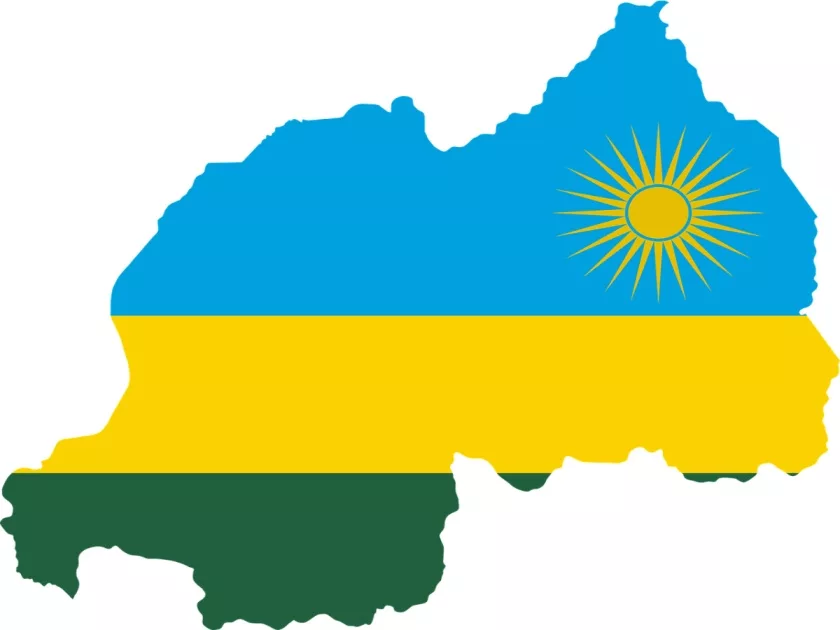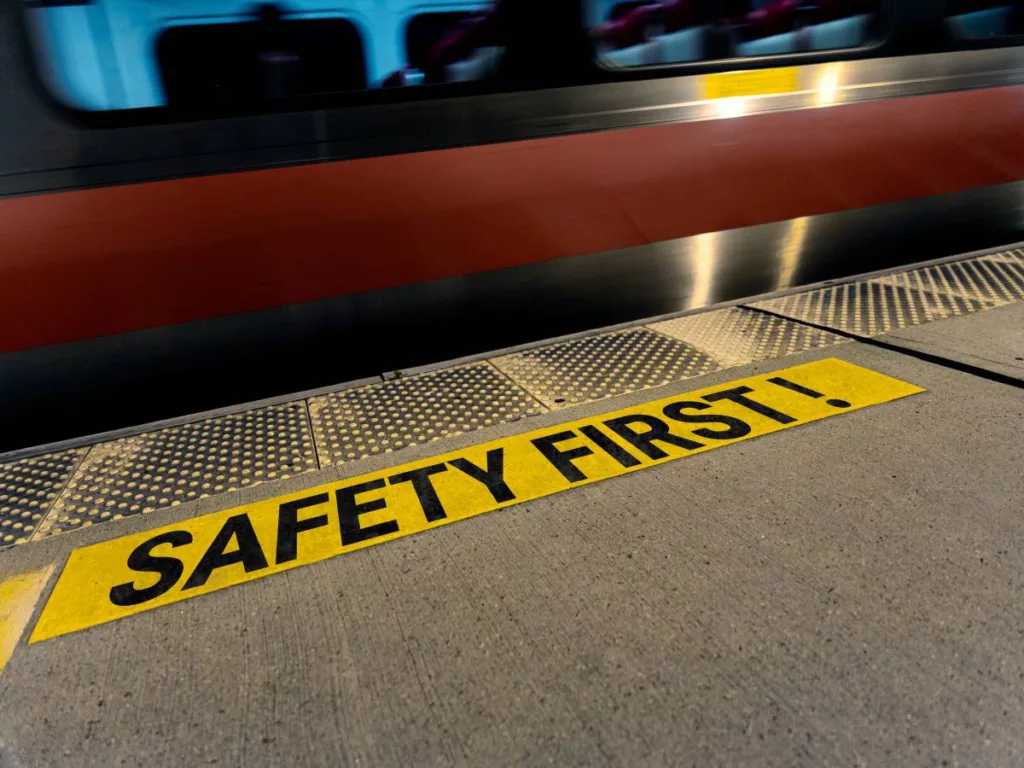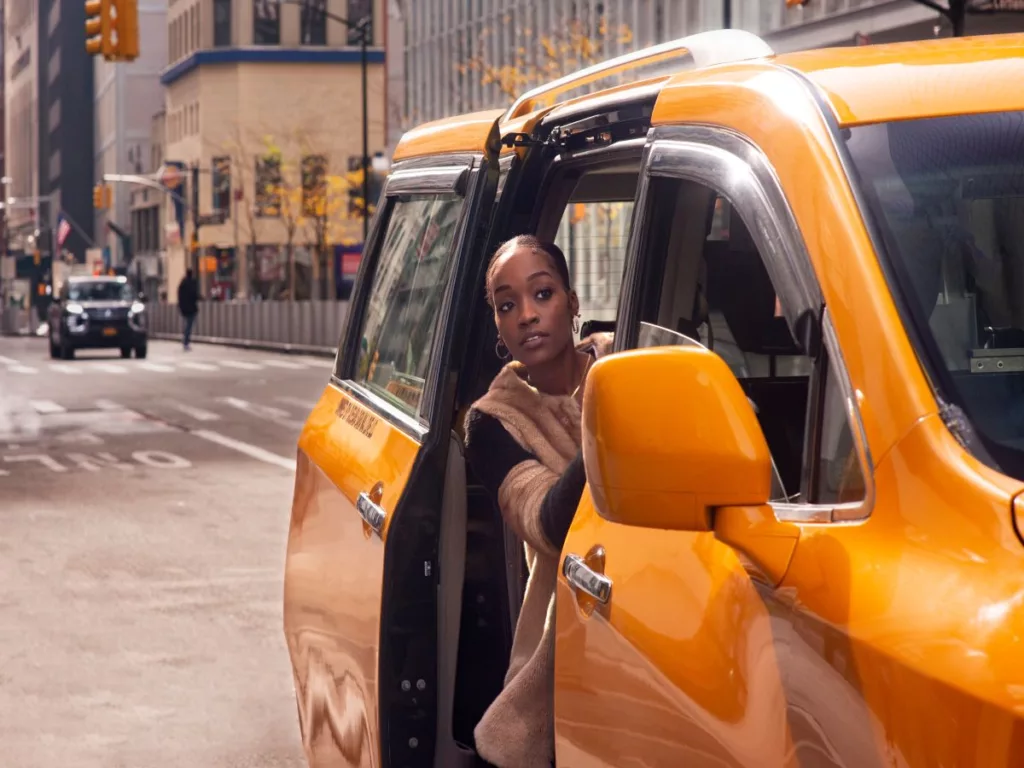As a frequent traveler to Africa, I am often asked if Rwanda is safe to visit. This small central African nation has a complex and troubling history, including the 1994 genocide against the Tutsi minority. However, in recent decades Rwanda has emerged as a stable, secure, and increasingly prosperous country. While no destination is without risks, Rwanda today welcomes visitors and has established itself as an up-and-coming tourist hotspot, especially for eco-tourism and gorilla trekking. In this article, I aim to provide an overview of safety and security in Rwanda based on official reports and my own experience traveling there extensively over the past five years. Overall, Rwanda can absolutely be a safe place to visit if you exercise normal travel precautions. The natural beauty, culture, and wildlife make it a rewarding destination for any adventurous traveler.

Assessing Safety Risks for Travelers in Rwanda
As a traveler to Rwanda, it is important to assess the potential safety risks. Rwanda has come a long way since the genocide of 1994 and has invested heavily in security. However, some risks still remain.
Politically, Rwanda is a stable country with little dissent. President Paul Kagame has led the country since 2000 and won the last election with nearly 99% of the vote. While Kagame is popular for restoring stability, some criticize limits on political opposition and free speech. Protests are rare but could potentially turn violent.
Petty crimes like pickpocketing and scams do occur, especially in Kigali and tourist destinations. Exercise caution with valuables and be wary of unsolicited offers. Some locals may try to take advantage of tourists’ naivety or trust.
Rwanda’s location in central Africa also brings the risk of disease. Get necessary vaccinations before traveling and exercise caution with food and water to avoid infections. The dry season from December to February sees fewer risks from diseases spread by insects like mosquitoes.
While security threats are minimal, especially compared to neighboring countries, remain vigilant. Avoid isolated areas or travel at night when possible. Register with the local embassy upon arrival. With normal travel safety precautions, Rwanda can be a remarkably safe destination to experience the natural beauty, culture, and renewal of this country.

Travel to rwanda 2024
Is it Safe to Travel to Rwanda?
As an avid traveler, Rwanda has been on my bucket list for years. However, before booking a trip, many wonder: Is Rwanda safe for tourists? As with any developing nation, there are risks to consider, but Rwanda has made great strides in recent decades to promote stability and become an increasingly popular tourist destination.
Political Stability and Low Crime
Since the 1994 genocide, Rwanda has established a stable government and become one of the safest countries in Africa. Violent crime is rare, especially for tourists. Standard travel precautions like avoiding isolated areas at night, using hotel safes, and not displaying valuables will minimize risks.
Health Concerns
While malaria is present, it is not very common in cities and the risk can be mitigated with vaccinations and mosquito bite prevention. Tap water may not always be potable, so drink bottled water and opt for cooked foods. Basic vaccinations like hepatitis A, typhoid, and meningitis are recommended. Quality medical care is available in Kigali.
Infrastructure and Transportation
Rwanda’s infrastructure is well-developed, with good roads and transportation between major cities and tourist destinations. Taxis, public transit, and tour companies provide easy ways for visitors to get around.
While there are inherent risks in any developing nation, Rwanda’s focus on safety, stability, and tourism makes it an exciting and worthwhile place to visit for the adventurous traveler. By exercising caution, getting proper vaccinations, and being aware of your surroundings, you can have a memorable trip to this beautiful country.
Is Rwanda Safe to Visit Right Now?
As a traveler interested in visiting Rwanda, safety is understandably a top concern. Based on my research, Rwanda can generally be considered a safe country for tourists if you exercise caution, as you would when traveling anywhere unfamiliar.
Political Stability and Low Crime
Rwanda has been a politically stable country for over two decades and has a relatively low crime rate, especially violent crime. The authoritarian government has placed a high priority on safety and security. Strict laws and enforcement have led to low levels of theft, assault, and other crimes that often target tourists.
Avoid Border Areas
However, there are some border areas I would recommend avoiding due to occasional conflicts and unrest. The borders with the Democratic Republic of Congo and Burundi in particular can be unsafe at times. It is best to check current events before your trip and steer clear of any active border disputes.
Wildlife Safety
Rwanda is home to wildlife like gorillas, chimpanzees, and big cats. When trekking or on safari, follow all instructions from your guides to avoid danger. Do not get too close to the animals or make sudden noises or movements that could provoke an attack.
Health Precautions
Take normal health precautions like vaccinations and safe food/water practices. Malaria risk exists throughout the year, especially in rural areas. Rwanda’s healthcare system is basic, so comprehensive travel insurance is advised in case of medical emergencies.
Overall, Rwanda can be a safe travel destination if you exercise caution, especially when near borders or wildlife. By following recommendations from the US State Department and your tour guides, taking necessary health precautions, and using common sense safety measures as in any new place, you can feel secure enjoying all the country has to offer. The natural beauty, culture, and hospitality of the Rwandan people make it a rewarding place to visit.
Travel Insurance in Rwanda
Travel insurance is highly recommended for any trip to Rwanda. As a developing country, Rwanda lacks some of the infrastructure and amenities that many Western travelers are accustomed to. While Rwanda has a relatively low crime rate, especially for violent crime, there are risks of illness, injury, or needing emergency medical care far from home.

Medical Evacuation and Emergency Care
In the event of a medical emergency, evacuation to a facility with adequate care could be necessary. Travel insurance covers the high costs of medical transport and emergency medical treatment. Policies that include emergency medical and evacuation can provide peace of mind in case of a health crisis.
Rwanda has few high-quality hospitals, especially outside the capital city of Kigali. In rural areas, clinics may lack essential medicines, equipment, and well-trained staff. Travel insurance ensures you have coverage for medical expenses and access to transport to an appropriate medical facility, which could potentially save your life in a crisis.
Trip Cancelation or Interruption
Unforeseen circumstances like illness, injury, or natural disasters could disrupt your trip. Insurance provides reimbursement for prepaid, non-refundable trip expenses if you have to cancel due to covered reasons outside of your control. If part of your trip is interrupted for a covered reason, insurance can help recover the cost of missed travel and lodging.
Given the additional risks of traveling in a developing country, purchasing a comprehensive travel insurance policy for your Rwanda trip is highly advisable. Look for a policy that covers emergency medical care, medical evacuation, trip cancelation, and trip interruption for the best protection. With the right coverage, you can feel secure exploring all the natural and cultural wonders Rwanda has to offer.
Common Travel Scams in Rwanda
As a frequent traveler to Rwanda, there are a few common scams of which visitors should be aware. While Rwanda is generally a safe country, tourists can be targets for petty theft and fraud. By exercising caution and vigilance, you can avoid becoming a victim.
Fake Police Officers
Unscrupulous individuals may pose as police officers or government officials to take advantage of tourists. They may claim there is an issue with your visa, hotel reservation, or other documentation in order to solicit a bribe. Legitimate police officers and government officials will not ask for money. If stopped, ask to see official identification and contact your hotel or embassy immediately.

Overcharging
Some taxi drivers, vendors, and merchants may attempt to charge higher prices to tourists who are unfamiliar with typical rates. Always confirm prices upfront before accepting goods or services. If something sounds too expensive, it likely is. Don’t be afraid to negotiate or walk away from a deal that seems unfair.
Pickpocketing
As in any crowded place, pickpocketing can occur, especially at busy tour attractions and in markets. Carry only copies of important documents and a minimal amount of cash. Keep bags closed and secured, and consider using a money belt under your clothing. Be wary of unsolicited physical contact like hugs, as this can be a tactic to distract you while stealing items from your pockets or bags.
By remaining vigilant of my surroundings, verifying the legitimacy of unsolicited requests, keeping valuables secure, and not displaying signs of wealth, I have traveled safely in Rwanda many times without issue. While there is no sure way to avoid scams entirely, caution and common sense can help reduce your chances of becoming a target. By taking normal travel safety precautions, you can feel confident exploring all the beauty and wonder Rwanda has to offer.
Rwanda Safety Travel?
When traveling to Rwanda, it’s important to exercise caution for your personal safety, as in any foreign country. However, Rwanda has a relatively low crime rate and is generally safe for tourists if you follow some basic tips:

Stay up to date on travel warnings and advisories
Check the U.S. Department of State’s travel website and your embassy’s website for the latest information on any areas to avoid due to crime, terrorism, or civil unrest. Certain border areas and refugee camps can be dangerous, so follow instructions to stay away.
Don’t display valuables
Avoid openly carrying large amounts of cash, expensive jewelry, or electronics that may attract thieves. Pickpocketing can happen, especially in crowded areas like markets, so be aware of your belongings.
Travel in groups when possible
There is safety in numbers, so consider group tours or travel with a companion. Solo female travelers should exercise extra caution. Stay in well-populated, well-lit areas as much as possible.
Register with the embassy
U.S. citizens should register with the embassy upon arrival in Rwanda. This helps officials contact you in case of an emergency. The embassy can also help if you encounter issues with local authorities or need emergency assistance.
Stay up to date on health issues
Check for any recommended vaccinations or health warnings before your trip. While infectious diseases are not a major risk for most visitors, it’s best to be aware of any outbreaks or concerns in the areas you’ll be visiting. Carry any important over-the-counter or prescription medicines that you may need.
By following these safety tips and being an informed traveler, you can feel comfortable experiencing all the natural and cultural wonders that Rwanda has to offer. With vigilance and common sense, Rwanda can be a safe and rewarding place to visit.
Is Rwanda Safe to Travel Alone?
As a solo female traveler, I feel relatively safe in Rwanda. However, there are a few precautions I would recommend taking.
Exercise caution at night.
While Kigali is generally safe during the day, I avoid being out alone after dark due to the risk of petty crimes like pickpocketing or mugging. If going out at night, travel with a group or use a taxi or rideshare.
Be wary of your belongings.
As in any city, there is a chance of theft, so I keep a close eye on my bags, electronics, and other valuables, especially in crowded areas like bus stations or markets. Don’t display valuables openly and keep them secured.
Learn some basic Kinyarwanda phrases.
Though many Rwandans speak English, learning some basic greetings in the local language is a sign of respect and can help if you need to communicate in an emergency. Carry a translation guide with common phrases.
Register with the US Embassy.
For added security as an American traveler, I register with the US Embassy upon arrival in Rwanda. They can then contact me in the event of an emergency or crisis. The Embassy also provides useful tips for staying safe in the country.
Consider guided tours.
For first-time visitors, taking guided tours is an easy way to explore the country with the added benefit of a knowledgeable local guide. They can steer you away from any unsafe areas and handle logistics. Once you get your bearings, independent travel is fine.
Overall, Rwanda is one of the safest countries in Africa for tourists, including solo female travelers and Americans. By exercising vigilance and common sense, you can feel secure exploring all this beautiful country has to offer. The welcoming and hospitable nature of Rwandans, combined with the low crime rates, make it an ideal destination for those seeking an authentic African experience.
Is it Safe for Americans in Rwanda?
As an American traveling to Rwanda, your safety is understandably a top concern. Based on my research, Rwanda is generally a safe country for tourists, including Americans, if you exercise caution.
Low Crime Rate
Rwanda has a relatively low crime rate, especially violent crime. Petty theft and pickpocketing can occur, so take normal precautions with your belongings. Violent crime is rare, but as in any developing country, be vigilant about your surroundings. Avoid walking alone at night and don’t display valuables.
Political Stability
Rwanda has been politically stable since the 1994 genocide. The authoritarian government has tight control and squashes most dissent. While democracy and free speech are limited, this control also contributes to low crime and terrorism risks. As a tourist, you are unlikely to experience any political instability or unrest.
Health Risks
You will need to get necessary vaccinations like hepatitis A and B, tetanus, and yellow fever before traveling to Rwanda. Malaria is also present, so take anti-malarial drugs. Only drink bottled or boiled water and be careful with food hygiene. As in any tropical country, there are risks of diseases like dengue, Zika, and chikungunya, so take normal precautions against insect bites. Quality medical care is limited, so purchase travel health insurance in case of emergency.
Overall, Rwanda can be a safe and rewarding place to visit if you take normal safety precautions for a developing country. Be aware of your surroundings, guard your belongings, get necessary vaccinations, and purchase travel insurance. By following these tips, Americans can feel secure experiencing all the natural and cultural wonders Rwanda has to offer.
Is Rwanda Safe for Solo Female Travelers?
As a solo female traveler, safety is understandably a top concern when visiting any foreign country, including Rwanda. Based on my research, Rwanda can absolutely be a safe destination for women traveling alone if you exercise caution and vigilance as you would anywhere else.
Low Violent Crime Rates
Rwanda has a relatively low rate of violent crime, especially compared to other African nations. Petty theft does occur, so take normal precautions with your valuables, but violent assaults are rare. The strict laws and security forces help keep the peace.
Dress Conservatively
Rwanda is a predominantly conservative society, so dress modestly, especially outside of Kigali. Avoid skimpy or tight-fitting clothing. Dressing conservatively will help you avoid unwanted attention and show respect for the local culture.
Use Official Transportation
Use officially licensed taxis, busses, or tour groups instead of unlicensed operators. Official transport is more secure, and drivers are vetted. Don’t walk alone or hitchhike, especially at night.
Stay Alert in Tourist Areas
Exercise caution in busier tourist areas like markets as pickpocketing can occur. Carry only copies of key documents, and women should keep bags close to their bodies. Don’t display valuables or cash openly.
Book Tours When Possible
For sightseeing outside Kigali, booking tours through reputable companies is safer than exploring independently. Guides can help ensure your safety, know which areas to avoid, and handle any issues that arise.
By following these tips and using common sense, solo female travelers can feel confident visiting the beautiful country of Rwanda. While no destination is 100% crime-free, Rwanda’s low crime rates and the welcoming nature of Rwandans can make it a rewarding and safe experience for any woman adventuring alone.
Is the Water Safe to Drink in Rwanda?
As a traveler visiting Rwanda, one of the top concerns is whether the tap water is potable. In general, it is not recommended to drink tap water in Rwanda. While water treatment facilities and infrastructure have improved in recent years, especially in major cities like Kigali, the risk of contracting diseases from contaminated water still exists for tourists.

Travel to rwanda 2024
To be safe, stick to bottled water for drinking and brushing your teeth during your trip. Many hotels and restaurants in Rwanda’s popular tourist destinations provide bottled water that is safe for foreigners to drink. You can also find bottled water for sale in most stores and markets. As an alternative, consider using a portable water filter or purifier and filtering the tap water yourself to reduce plastic use. Boiling tap water for at least one minute will also kill bacteria and other germs, allowing it to be used for drinking after it has cooled.
When bathing or showering, avoid swallowing any tap water. The water may contain contaminants that can cause digestive issues or other illnesses. Keep your mouth closed while bathing and make sure any cuts or wounds are covered to prevent infection. It is a good precaution to take bottled or filtered water into the bathroom for brushing your teeth as an extra safety measure.
By only drinking bottled or filtered water and avoiding swallowing tap water, the chances of getting sick from microbes or parasites in Rwanda are low. Take normal travel health precautions like washing hands frequently to avoid other common travel infections. Following these tips will help ensure you stay healthy and hydrated on your trip so you can enjoy all that beautiful Rwanda has to offer.
Is the Food Safe to Eat in Rwanda?
While traveling to any developing country poses risks, Rwanda has made great strides to ensure tourism safety. As in any country, exercising caution regarding food and water is advised. However, Rwanda has high standards for hygiene and sanitation to safeguard public health.

Strict Regulations and Standards
The Rwandan government closely monitors food production and importation. Strict regulations are enforced for food safety, hygiene, and sanitation. Food handlers and establishments must obtain permits and licenses to operate, ensuring compliance with standards. Routine inspections check for proper food handling, storage, and preparation.
High-Quality Ingredients
Much of Rwanda’s food is locally sourced, farm-to-table fresh. Fruits, vegetables, grains, and legumes are grown using organic, sustainable methods. Meat, poultry, and dairy also come from free-range, grass-fed animals. With a focus on high-quality, natural ingredients, food is safe, nutritious and delicious.
Purified Water
Tap water in Rwanda is not potable, so bottled or boiled water is recommended. Hotels, restaurants, and other establishments use water purification systems to filter and disinfect water for cooking and cleaning. Packaged bottled water and bottled beverages are also widely available for purchase.
In summary, by following normal travel precautions regarding food and water, visitors can feel confident in the safety of Rwanda’s food. Stringent regulations, high standards for hygiene, and a focus on fresh, high-quality ingredients mean that both street food and fine dining can be enjoyed without worry. With the prudent selection of restaurants and vigilance in avoiding unpurified water, the delicious cuisine of Rwanda can be safely savored.
Are Taxis in Rwanda Safe?
As a tourist visiting Rwanda, using taxis to get around can be worrying if you’re unsure about the safety. Based on my research, taxis in Rwanda’s capital Kigali, and other major cities seem generally safe if you exercise caution. However, some key things to keep in mind:

Travel to rwanda 2024
•Use officially licensed taxis. Look for taxis with red license plates that say “Taxi” on the side. These are regulated by the Rwanda Utilities Regulatory Authority (RURA). Avoid unmarked vehicles offering taxi services.
•Negotiate the fare upfront. Ask your hotel staff about standard fares to destinations so you know what is reasonable. Agree on the total fare before getting into the taxi to avoid being overcharged at the end of your ride.
•Sit in the backseat. As an added safety precaution, sit directly behind the driver rather than in the front passenger seat. This makes it more difficult for the driver to take your belongings or harm you.
•Watch your belongings. Keep bags, wallets, and other valuables close by you in the taxi and don’t leave them in an easily accessible place for the driver. While official taxis are generally safe, it’s best to exercise caution with your personal items.
•Note the taxi details. Write down the taxi number, company name, and driver details. Take a photo of the license plate if possible. This information could help identify the taxi if any issues arise.
•Trust your instincts. If anything feels off about the taxi or driver, don’t get in. Wait for another taxi or call your hotel for help. Safety is the top priority, so go with what feels right.
Following these tips will help ensure your taxi rides in Rwanda are safe, comfortable and scam-free. While most visits to Rwanda are trouble-free when it comes to taxis, exercising caution and trusting your instincts can help avoid any potential issues. Overall, taxis are a convenient way to get around but remain vigilant about your personal safety and belongings.
Is Rwanda Safe to Live?
As I consider traveling to Rwanda, one of my top concerns is safety. Rwanda has come a long way since the genocide of 1994 and has invested heavily in security. However, some risks still remain for tourists.
Political stability
Rwanda has a stable political system and government. President Paul Kagame has led the country since 2000 and has prioritized peace and security. There is little chance of political upheaval or unrest impacting visitors.
Low violent crime
Violent crimes like homicide, assault, and armed robbery are rare in Rwanda. The strict laws and security presence deter most violent criminal activity. As in any country, exercise caution with valuables and avoid less populated areas at night.
Terrorism unlikely
Terrorist attacks are highly unlikely in Rwanda. The government has strong counterterrorism security and intelligence to prevent terrorist activity. Rwanda is not a target for major extremist groups.
Health risks to consider
While Rwanda has a stable healthcare system, some infectious diseases like malaria, Ebola, and COVID-19 pose risks to travelers. Make sure you are up to date on all necessary vaccinations before your trip. Practice good hygiene like frequent hand washing to avoid illness. Medical care may be limited outside Kigali, so purchase travel insurance in case of health emergencies.
In summary, Rwanda today is a very safe country, especially compared to its neighbors. By exercising caution, as you would in any developing nation, staying up to date on health risks, and avoiding remote areas, you can feel secure traveling to and within Rwanda. The natural beauty, culture, and hospitality of the Rwandan people make it a worthwhile destination.
So, Is it Dangerous in Rwanda?
As a traveler interested in visiting Rwanda, safety is understandably a top concern. Based on my research, Rwanda today is a very safe country for tourists.
Political Stability
Since the 1994 genocide, Rwanda has been led by President Paul Kagame and has been largely politically stable. There is little risk of political violence or terrorism targeting visitors. The authoritarian government has been criticized for suppressing dissent and limiting civil liberties but has also helped establish law and order.
Low Crime Rates
Rwanda has one of the lowest crime rates in Africa. Violent crimes like murder, armed robbery, and assault are rare, especially against foreigners. Petty crimes do occur, so exercise normal precautions with your valuables. Corruption and bribery are also uncommon. The strict laws and security presence can make some visitors uncomfortable but contribute to the low crime.
Safe Cities and Infrastructure
Rwanda’s cities like the capital Kigali are very clean and safe, with infrastructure on par with developed nations. Hospitals and emergency services are of high quality should any health issues arise. Tap water is potable, and food hygiene is tightly regulated minimizing the risk of disease.
While there are certainly still risks to traveling in any developing country, Rwanda’s focus on security, stability, and prosperity makes it one of the safest countries in Africa for tourists. By exercising normal travel safety precautions, the vast majority of visitors enjoy a secure and memorable trip to Rwanda. Overall, if you’re looking for an exciting yet safe African getaway, Rwanda deserves strong consideration.



GIPHY App Key not set. Please check settings